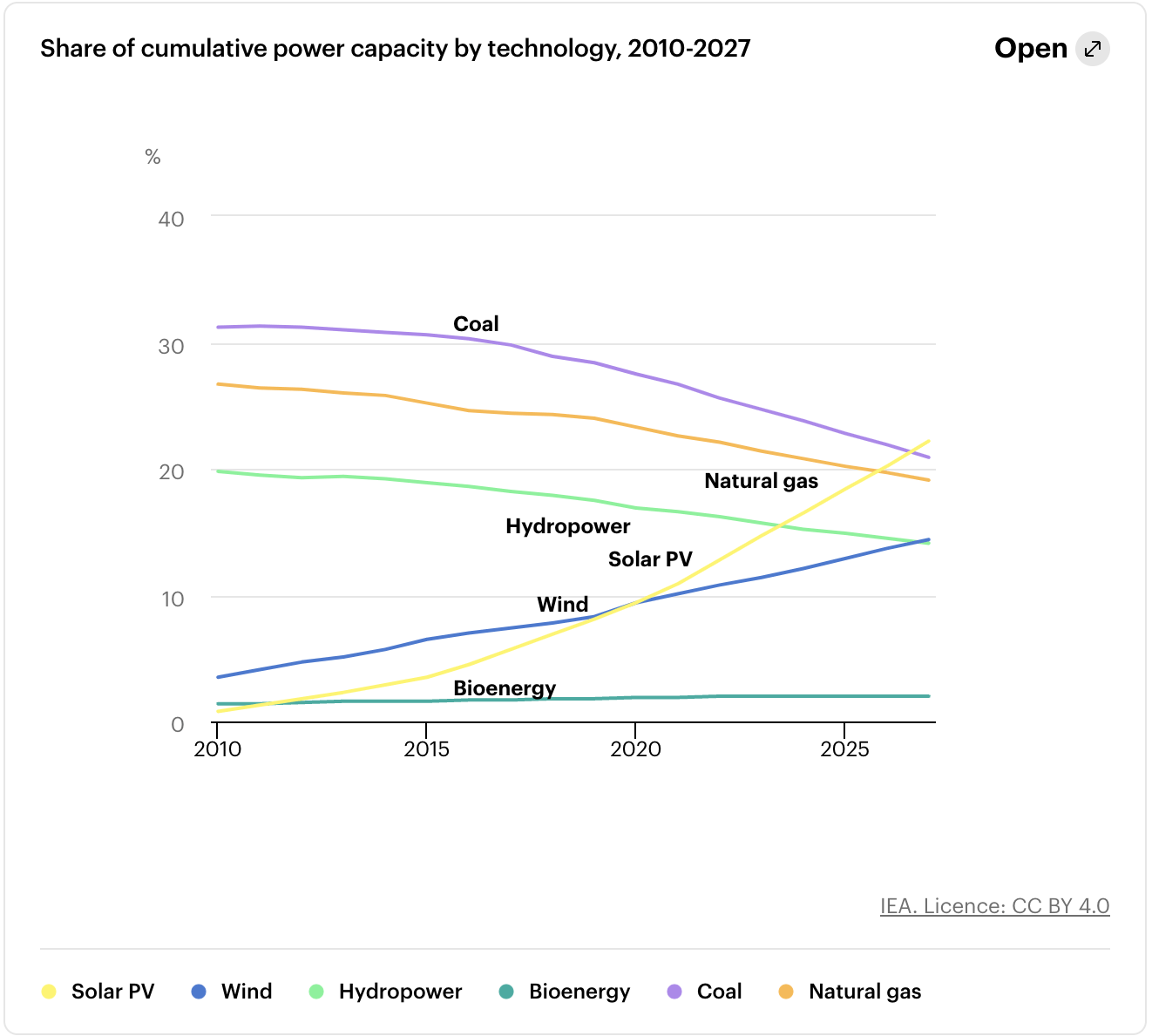In today’s world, sustainability is not merely a trend that will pass after a while. For many, it’s a way of life. As environmental concerns continue to rise, so does the demand for sustainable solutions. If you’re a budding eco-warrior eager to start your sustainable business journey, this guide is for you.
Green Business Ventures To Explore
Aspiring eco-entrepreneurs have a unique opportunity to not only create successful ventures but also make a positive impact on the planet. If you’re passionate about starting your own business, here are five sustainable business ideas to inspire your entrepreneurial journey.
1. Solar energy installation
Harnessing the sun’s power is environmentally responsible and financially rewarding. Solar energy is on track to becoming the most sought-after renewable energy solution. The installed power capacity of solar photovoltaic (PV) is set to exceed coal by 2027, making it the largest in the world.

To get started in the solar energy business, acquire the necessary knowledge and certifications in solar panel installation. Look for accredited training programs and courses related to solar panel installation. These programs often cover the fundamentals of solar energy, electrical systems, and installation techniques.
Seek industry-recognized certifications such as NABCEP (North American Board of Certified Energy Practitioners). Becoming NABCEP-certified demonstrates your competence and commitment to high-quality installations. It would also help to familiarize yourself with local regulations and building codes. Compliance is essential to avoid legal complications.
Of course, while this sustainable business has a lot of potential, market research is still a must. Utilize solar potential maps and online tools to identify regions with abundant sunlight. The more solar irradiance an area receives, the more viable it is for solar installations.
2. Zero-waste grocery store
Consumers are increasingly mindful of their environmental footprint and actively seek eco-friendly and sustainable products. A zero-waste grocery store aligns perfectly with these preferences. According to a survey, 85 percent of consumers globally have changed their consumption habits to reduce their impact on the environment.
If you plan to enter this business, start by building partnerships with local farmers and sustainable suppliers for fresh, eco-friendly products. Invest in reusable and eco-friendly packaging solutions to minimize waste.
3. Organic urban farming
Sustainable agriculture practices are essential for preserving the planet’s ecosystems. Starting a business in organic farming, vertical farming, or hydroponics can provide fresh produce and contribute to a greener future. Globally, the organic food market is expected to grow at a CAGR of 11.7 percent within the next decade.
Maintaining your equipment is crucial to complement your organic farming venture. Troubleshooting sputtering issues in push mowers ensures your operations run efficiently, minimizing disruptions in maintaining your sustainable farm. Sell directly to local markets and restaurants to maximize profits.
You can also invest in crop diversity. Experiment with a variety of crops, including the innovative use of the Calusas plant, known for its sustainability and versatility in eco-friendly products. As consumers seek transparency from businesses, you must implement eco-friendly farming techniques like composting and rainwater harvesting. You can take your business a notch higher by offering lessons on urban farming or hydroponics.
4. Green building consultancy
The construction industry has a significant carbon footprint, but it doesn’t mean there’s nothing you can do to make it sustainable. In fact, there’s a growing demand for green building practices.
In the realm of retail automotive parts, effective financial planning for O’Reilly franchise ownership is essential to ensure that the business not only thrives economically but also contributes positively to environmental sustainability.
Launching a business specializing in sustainable building materials, energy-efficient designs, or eco-friendly construction techniques can be lucrative. The global green building material industry is expected to reach $951.15 billion by 2030.
To excel in the green-building consultancy space, follow these tips:
- Research and identify the most recognized certifications in sustainable building, such as LEED (Leadership in Energy and Environmental Design) or WELL Building Standard. Choose certifications that align with your specific expertise and goals.
- Build a network of architects, builders, and real estate developers who share your vision. Participate in industry conferences, workshops, and seminars. These events are excellent networking opportunities and a chance to connect with like-minded individuals. Better yet, become a member of professional organizations related to sustainable construction, such as the US Green Building Council (USGBC).
- With enough experience, you can offer workshops and seminars to educate clients about the benefits of green construction.
- The field of sustainable construction is constantly evolving, with new technologies and materials emerging regularly. Staying informed about these developments is essential to offering cutting-edge solutions.
- If feasible, engage in research and development projects to test and implement new sustainable technologies. This hands-on experience can set you apart as an industry leader.
5. Electric bicycle rentals
Electric bicycles are eco-friendly alternatives to traditional cars and provide a convenient mode of transportation for commuters and tourists alike. With the global shift toward sustainable transportation, the electric bicycle market is projected to grow at a CAGR of 9.97 percent from 2021 to 2028.
To succeed in this growing market, consider these tips:
- Choose strategic locations in urban areas with high foot traffic and bike lanes.
- Get the lion’s share of the market by investing in a diverse fleet of e-bicycles to cater to different customer needs.
- Protect your business from potential liabilities.
- Ensure regular maintenance and safety checks for a seamless customer experience.
- Make your venture future-proof.
- Develop a user-friendly app for easy booking and navigation.
Financing Your Sustainable Business
One of the critical elements of financing your sustainable business is finding partners. Make sure you connect with people who share your commitment to environmental sustainability and align with your business vision. These partners can provide financial support, valuable expertise, and connections.
Starting a sustainable business requires an initial injection of capital to get off the ground. Exploring a range of financing options can help you secure the necessary funds.
Consider approaching banks and financial institutions for small business loans. Some banks offer specialized loans or lines of credit for environmentally friendly ventures. Be prepared to present a solid business plan and financial projections.
Look for grants and business competitions that specifically support sustainability initiatives. These can provide non-dilutive funding and valuable exposure.
Additionally, consider business credit cards designed to support small businesses with flexible financing solutions. Still, be conscious of your credit card usage and only use it for necessary business expenses. Avoid carrying high balances and pay your bills promptly to maintain a good credit score.
Be an Eco Warrior With Sustainable Ventures
The time is ripe for aspiring eco-entrepreneurs to make a difference in the world while reaping the rewards of sustainable business ventures. Sustainability isn’t just a trend but a commitment to a greener future. Placing sustainability at the forefront of your business ideas benefits the environment and appeals to an ever-growing market of eco-conscious consumers. Embrace these opportunities and build a more sustainable tomorrow.

